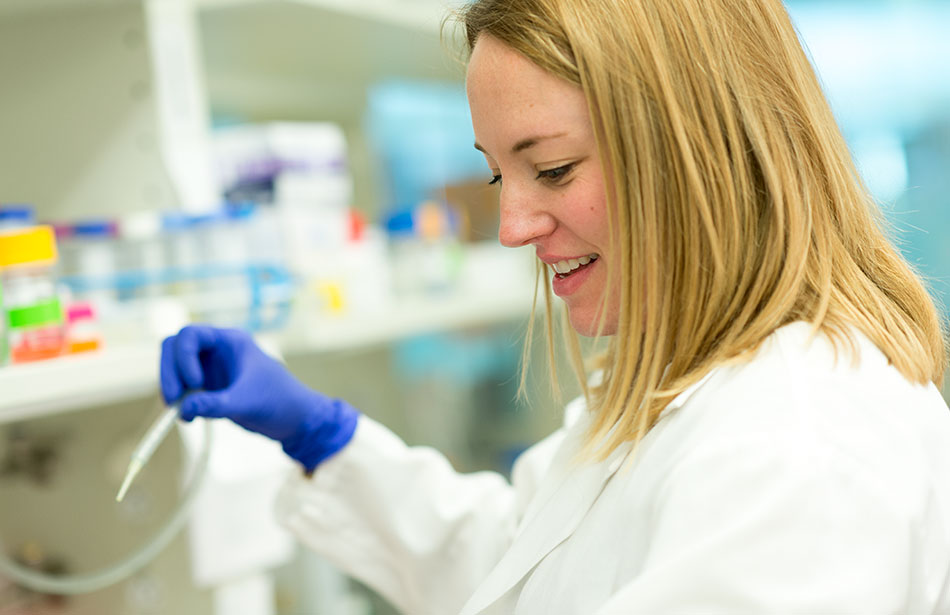Metabolism is the set of life-giving biochemical reactions that enable our cells to grow, develop, and achieve physiological homeostasis. Recent discoveries have revealed that disrupted metabolism underlies a broad swath of both rare and prominent human diseases. In collaboration with UW–Madison via the broader Morgridge Metabolism Initiative, Investigators in the Morgridge Metabolism theme are dedicated to elucidating the basic molecular and genetic aspects of metabolism toward improving metabolic health.
Often called the “chemistry of life,” metabolism provides the fuel for all cellular activities and goes awry in most human diseases.
Dave Pagliarini’s laboratory is driven to discover the biochemical underpinnings of mitochondrial dysfunction in human disease. Pagliarini set the foundation for this work by defining the protein composition of mitochondria and how it changes across different tissues. His group is now blending large-scale systems biology approaches with mechanistic and structural biochemistry to systematically annotate the functions of these mitochondrial proteins, including many that harbor causative mutations in human disease.
Jing Fan’s laboratory works towards a quantitative understanding of mammalian cellular metabolism, with a particular focus in cancer metabolism. The lab uses a combination of approaches to investigate how cellular metabolism is rewired to support the spread and growth of cancer, and look at how cellular metabolism is dynamically regulated in response to various microenvironments.
Jason Cantor’s lab has broad interests in modeling, understanding, and exploiting the impact of environmental factors on human cell metabolism, with a particular focus on hematological cancers and normal lymphocytes.
Melissa Skala’s lab develops optical imaging tools to monitor metabolism at the single cell level. These tools are used in living cells, animal models, and patient samples to improve cancer treatment
The Josh Coon Lab facilitates expedient, comprehensive systems analysis at the molecular level to advance biomedical, biofuel, and biochemical research.





